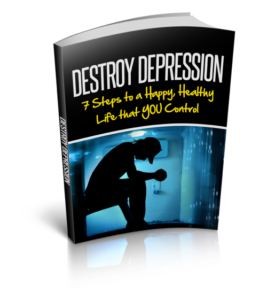I have written previously about how we are making progress in the acceptance of mental health issues titled Not all heroes wear capes. Many organisations staff and high-profile individuals have made their own personal mental health struggles public. It appears that at least on the surface that attitudes are changing. One of the areas that changes in attitudes towards mental health is becoming more prominent is the workplace. Most workplaces now offer several days each year for personal or compassionate leave. Many workplaces train managers on the importance of a good mental health environment and the walls of the building and break rooms are often covered in posters about accessing help for a mental health crisis. Most companies have Employee Assistance Programs so employees can have access to free counselling for personal or mental health issues.
This all sounds good and is a giant leap from where we were maybe even 10 years ago. So what is the reality of disclosing that you need a “mental health” day off ? . Given all the changes that have occurred you might be thinking it is not a problem. However, many people still lie about their reasons for taking the day off. I have personally lied at times about having mental health issues as I knew there would be consequences. I know of many people whose work environment has suffered because of open disclosure. Ironically, some of the workplaces were not for profit charities whose primary focus was on mental health. It almost seems like it is okay to not be okay just don’t do it at work and don’t tell us about it.
Sarah Billington wrote a great article for Huffpost in 2018 titled “I Took A Mental Health Day At Work And Lied About It. Here’s Why.” In which she described the stigma that still exists in the workplace around mental health issues compared to physical illness. One paragraph that really sums up what a common attitude in the workplace is states, “An inability to do your job because you have a cough and a sore throat are viewed as an inability to work effectively in the short term. No one will even remember in a month. But excusing yourself from work for a day because you’re spiraling with anxiety and need to step back and get on top of it can affect an employer’s more long-term view of your abilities, even if taking that day means that you can get healthy again and be better than before.” (Billington 2018). That one paragraph sums up the attitude that still seems to exist today in many workplaces and in society in general. The author then concludes with “The stigma is real and undeserved. Mental illness doesn’t define me, and I’m stronger than people give me credit for. But until managers and employers start to treat mental illness as just as manageable in their employees as physiological illness, and not a weakness, I’ll lie, and so will so many others.”(Billington 2018). The article is an excellent read and gives a great insight into the reality of disclosing mental health issues in the workplace.
Elraz (2018) suggests there is still a stigma around mental health issues and the workplace. The authors’ study confirms the benefits of speaking openly about mental health issues but notes how disclosure in the workplace can be problematic. Much of the discussion confirms the Huffpost article and suggests we still have a long way to go if we are to change the rhetoric around mental health into tangible and nonjudgmental action.
So where does that leave the individual who is suffering? I don’t wish to appear negative or to suggest that we don’t continue to make progress in how we view mental health issues in the workplace. It is always your decision on how to handle your mental health and your workplace. I just feel it is important to weigh up the pros and cons of disclosure. The goal is to get well and stay as well as possible, so figure out what will work best for you. Maybe you can see a counsellor privately and ring a helpline during lunch breaks to get through those really tough days. If you do choose to disclose your situation to your manager I hope you get all the support, you need. I just want you to go in with your eyes open. Not everyone at work is your friend and not everyone is going to understand.
Wishing you the best in your journey
Phil Miranda
Sources:
Billington, S. (2018) I Took A Mental Health Day At Work And Lied About It. Here’s Why. https://www.huffpost.com/entry/mental-health-day-work_n_5c023517e4b04fb21168335e
Elraz, H. (2018). Identity, mental health and work: How employees with mental health conditions recount stigma and the pejorative discourse of mental illness. Human Relations, 71(5), 722-741. doi: 10.1177/0018726717716752



